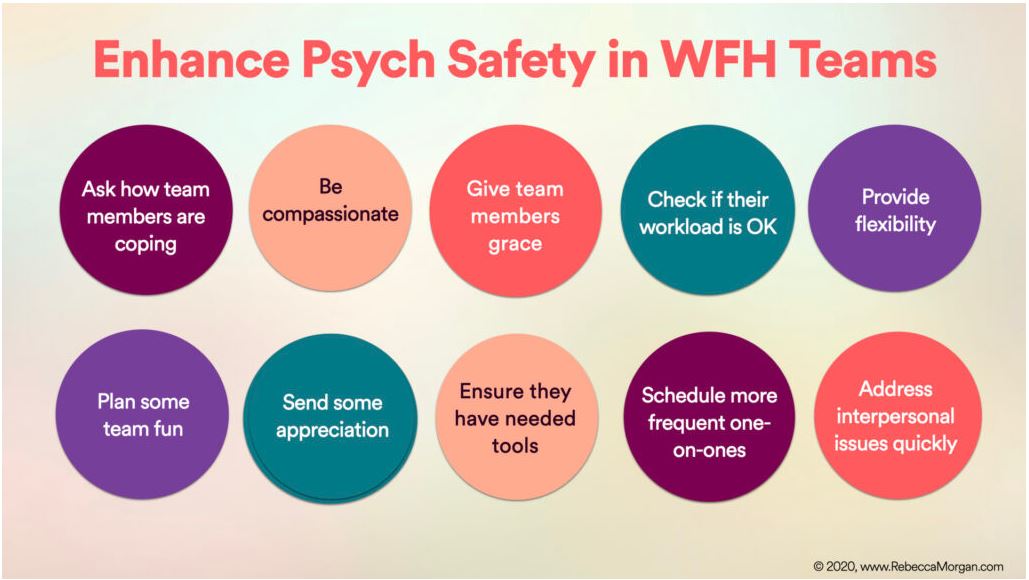- Ask how team members are coping.
Regularly check in during one-on-ones by asking how they’re doing with life right now, not just your work life. Explain that if you know what’s concerning them, you might be able to help. (Note: although there are reports of people discussing their issues in group meetings, for privacy don’t ask this when others are listening.)
- Be compassionate.
Most people are more worried than usual: Will they get sick? Will a loved one get sick? Will they keep their job? Will their loved ones be financially OK through this? Gently show empathy, even if you don’t share their worries.
- Give team members grace.
If he’s usually prompt, but today he’s a little late for a meeting, allow that there is a very good reason. She didn’t put on her video in today’s meeting? Maybe she’s just not feeling up to being seen today. Don’t chastise them. Give them grace.
- Check if their workload is OK.
Many people are juggling more tasks than usual. If she is feeling stressed about this, she won’t be performing at her best. Ask her to set her own deadlines that she feels comfortable with (if possible).
- Provide flexibility.
If at all possible, allow team members to work during the hours that are best for them. If he can’t focus well before his toddler goes to bed at 8:00, don’t ask for items to be due at 5:00.
- Plan some team fun.
Some teams are organizing Friday happy hours with a loosely facilitated agenda. Ask team members to share for 1 minute: show us an object from your home and share a story about it; tell us about a favorite relative; show us a photo of your best vacation; tell us about the most unusual place you’ve visited.
- Send some appreciation.
This could be a hand-written note, a Starbucks gift card, or a healthy snack basket. Some managers send a Postmates gift certificate for team members to use for their weekly lunches together.
- Ensure they have needed tools.
Some companies provide a home office upgrade budget. Some offer an ergonomics counselor to prevent strains. Some organizations offer a monthly stipend to pay for better Internet.
- Schedule more frequent one-on-ones.
These can be as short as 10 minutes every day or two. Communication is critical when people don’t see each other every day. Ensure you’re checking in frequently not to micromanage, but to take the temperature of everyone’s well being and work flow.
- Address any interpersonal issues quickly.
If there’s an issue involving a team member, hear both people’s perspective. Smooth it out by reminding both parties that people are under unprecedented stress right now and we all have slips. Encourage them to give each other some slack. If appropriate, encourage them to talk it out with each other.
Take the Morgan Psychological Safety Survey to see how safe you feel on your team: bit.ly/MorganPSS

